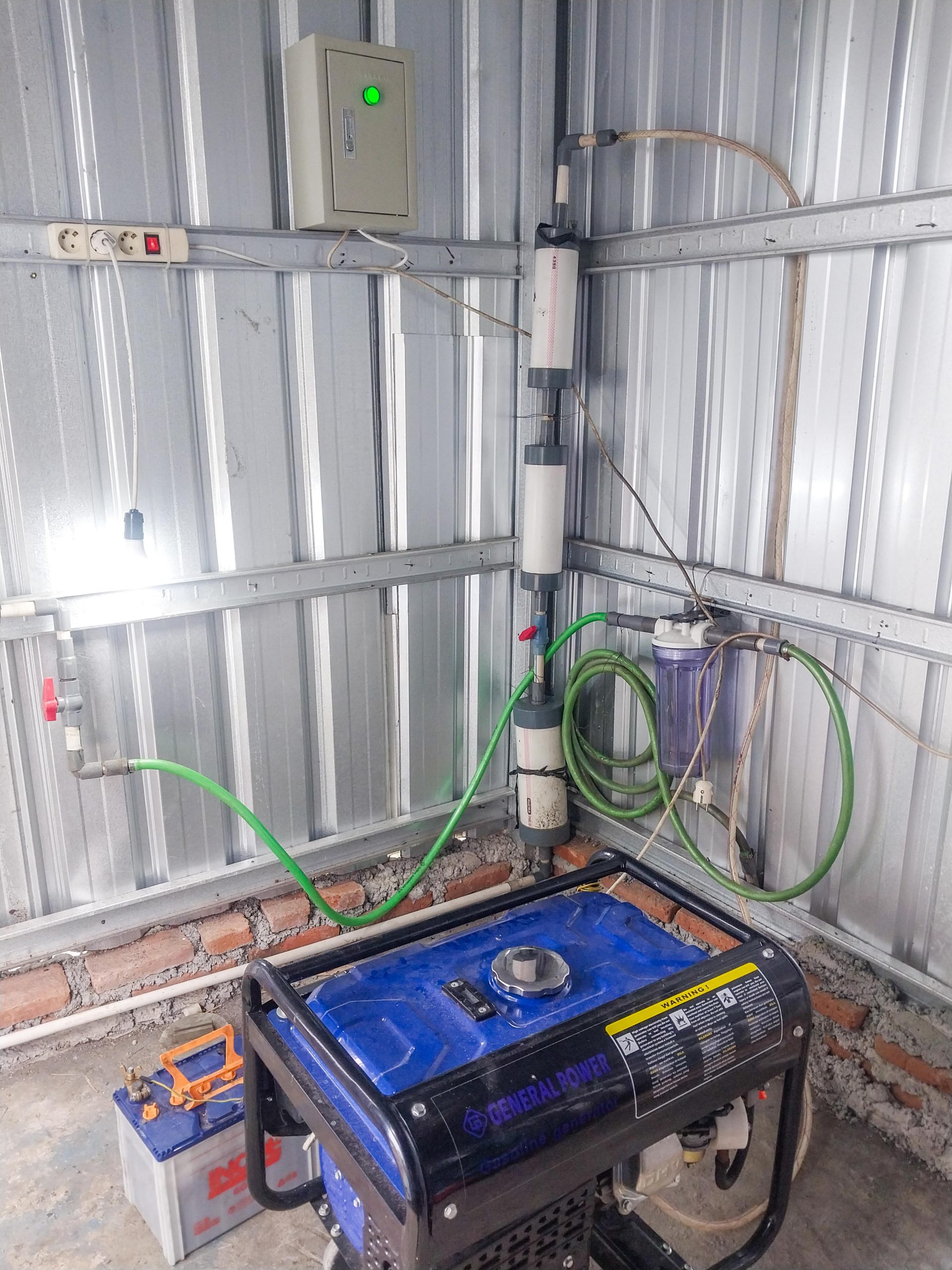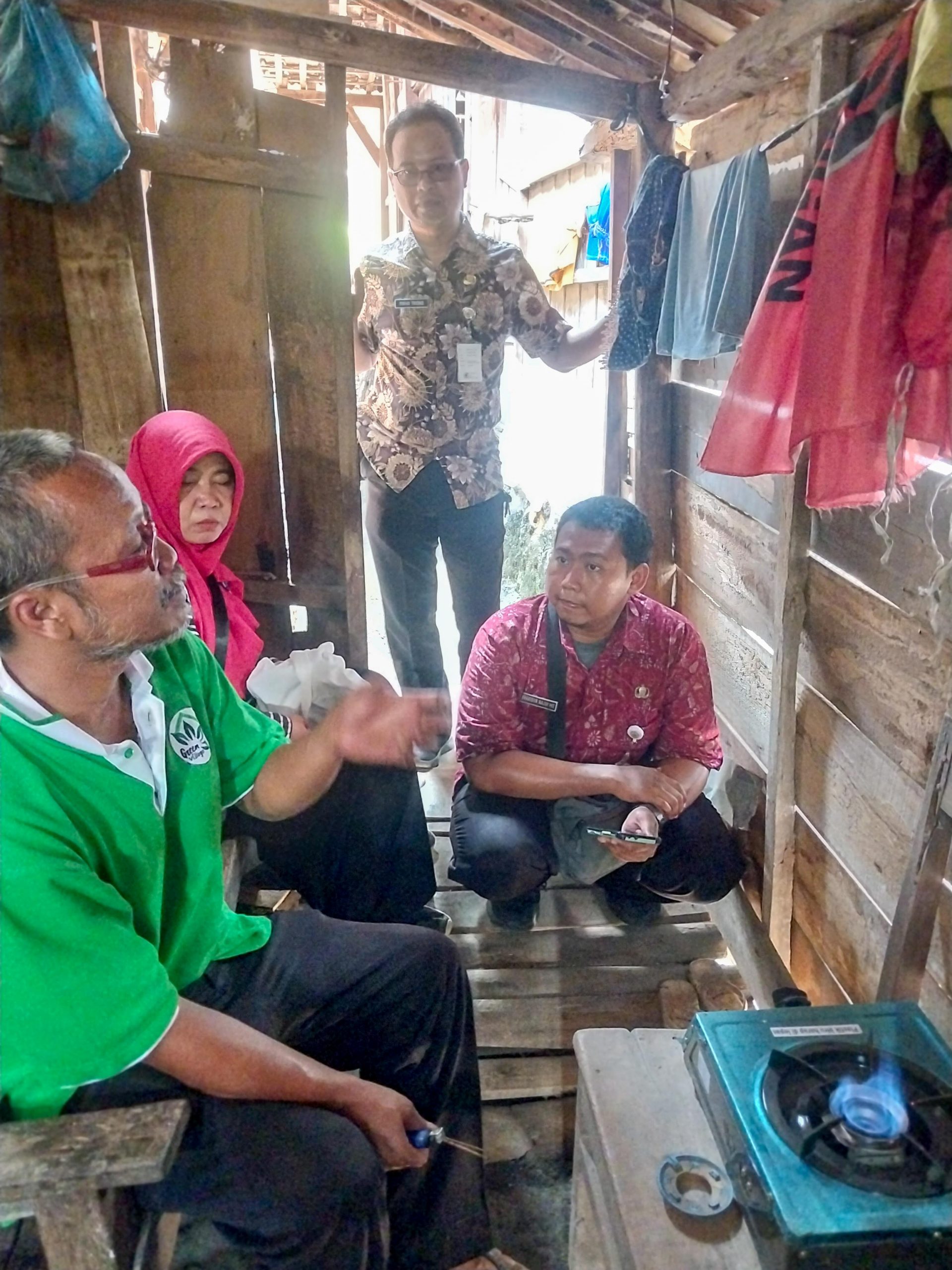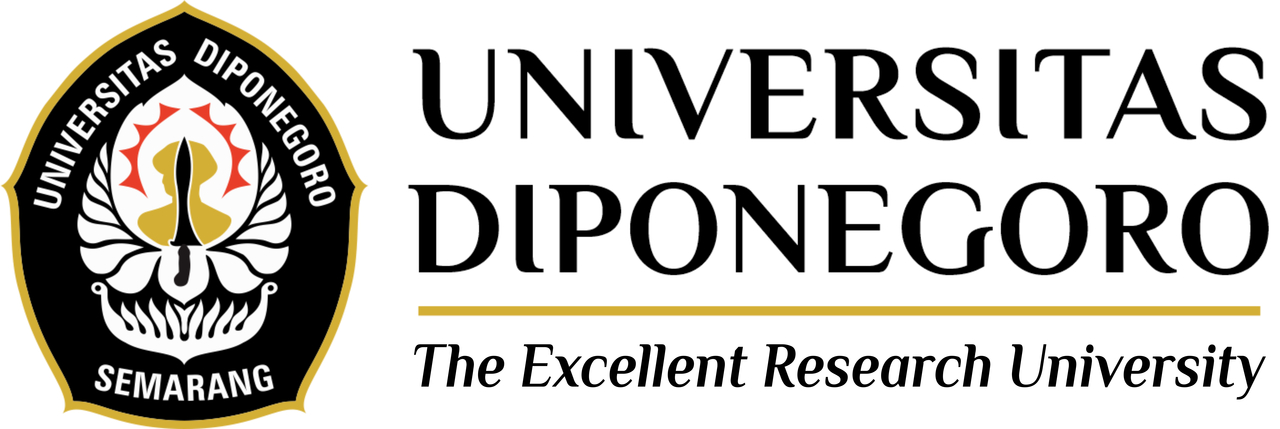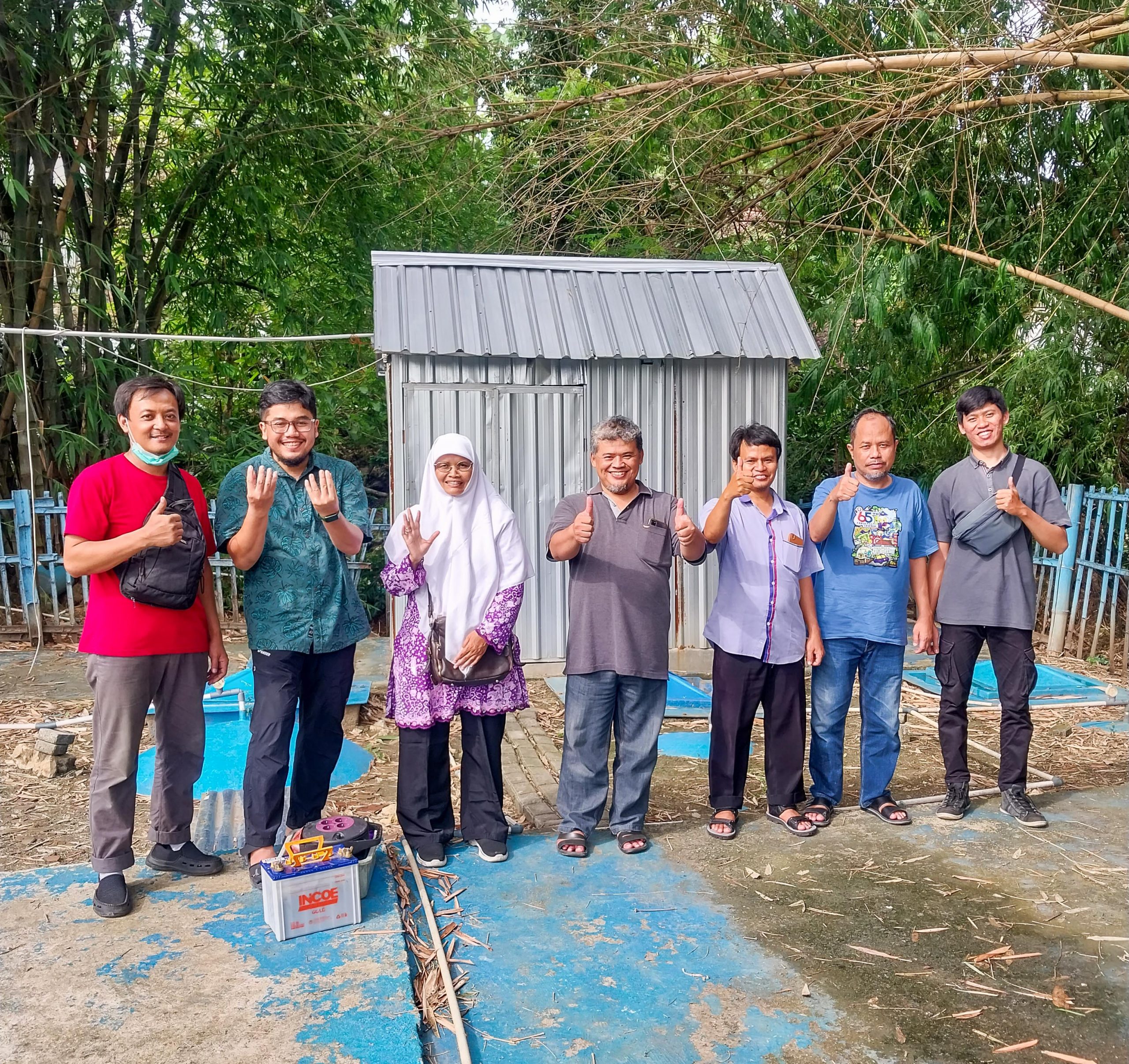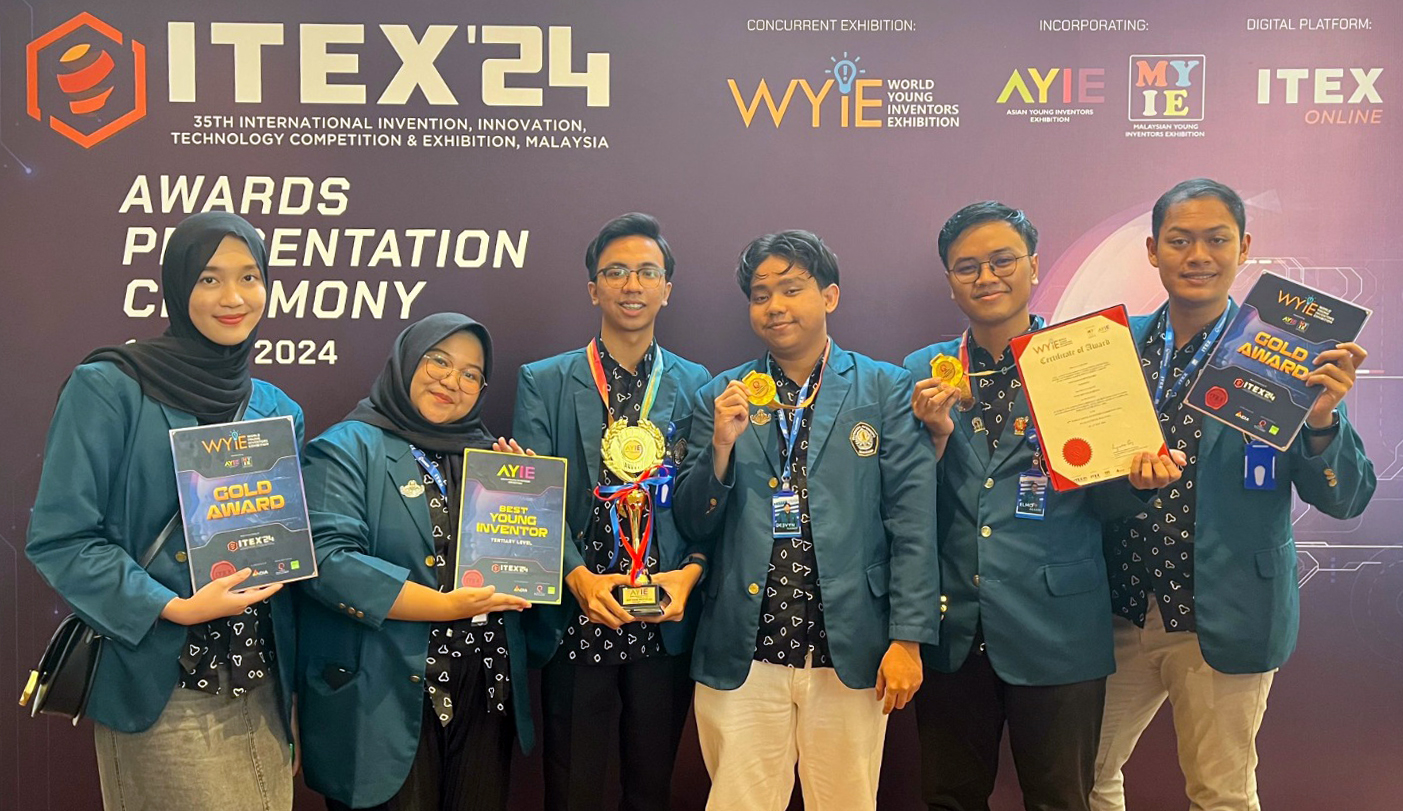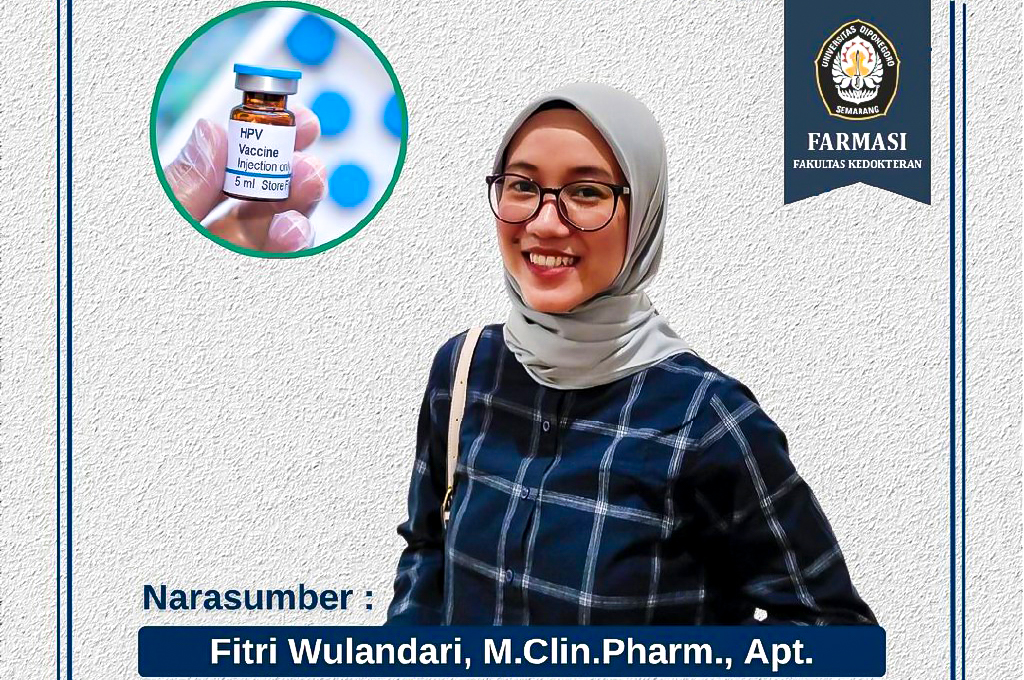The production of tofu in Sugihmanik Village, Tanggungharjo Sub-District, Grobogan Regency, has rapidly expanded over the past 5 years, coinciding with the increasing number of Micro, Small and Medium Enterprises (MSMEs) reaching around 30 MSMEs. Consequently, the tofu production process generates a large amount of liquid waste. The high protein content in this liquid waste is highly beneficial. However, improper disposal into the river without treatment causes river pollution and a foul smell that can disrupt the environment.
Since 2021, a Memorandum of Understanding (MoU) between Undip and the Grobogan Regency Government has been established through the Science and Technology scheme for Undip’s fostered villages. The MoU from the Undip team is chaired by Prof. Dr. Sri Hartini, S.T., M.T., a professor in the Department of Industrial Engineering, Faculty of Engineering, Diponegoro University, specializing in Production Systems. She explained that the collaborative MoU activities between the Undip team and the Grobogan Regency Development Planning Agency (Bappeda) include research and community service cooperation involving professors, industries, and students, supporting the realization of sustainable development in Sugihmanik Village through the Green Circular Economy, especially in tofu MSMEs.
The activities began with environmental impact analysis and the design of Wastewater Treatment Plants (Instalasi Pengolahan Air Limbah/IPAL) for tofu MSMEs in Sendang Mudal Sub-Village. In 2022, the Ministry of Education and Culture (KemdikbudDikti) carried out the construction of IPAL for 22 MSMEs through the Matching Fund Program, which aimed at reducing water pollution for water conservation and utilizing digesters for biogas as environmentally friendly energy. The Undip team also strengthened knowledge and institutions to support water and energy conservation in Sugihmanik Village, including tree-planting activities.
In 2023, the Undip team initiated the recycling process of other waste into useful products, including processing tofu liquid waste into organic fertilizer and nata de soya and solid waste into compost.
To optimize the biogas produced by the IPAL, the Grobogan Regency Government invited the Undip team to increase biogas utilization by adding 5 additional biogas stoves and converting biogas into electricity used for street lighting.
With the potential of cattle waste around the IPAL, additional digesters were installed for tofu waste and cattle waste. The biogas optimization program by Prof. Dr. Sri Hartini, S.T., M.T., along with her team members Dr. Muchammad, S.T., M.T.; Dr. Diana Puspita Sari, S.T., M.T.; and Dr. Cahya Setya Utama, S.Pt., M.Si., also collaborated with a team from Muhammadiyah University of Magelang (UNIMMA), namely Dr. Suroto Munahar, S.T., M.T., and Bagiyo Condro Purnomo, S.T., M.Eng.
“We hope that the community can maintain the IPAL properly. However, the quality of biogas production is closely related to the maintenance of the IPAL. The quality of IPAL maintenance influences biogas production,” said Prof. Ninik, her nickname.
“The cooperation between academia and local governments is expected to continue sustainably. Moreover, considering that many tofu and cattle farms have not yet treated their waste, river pollution has not been fully addressed,” Prof. Ninik added.
“There are still at least 5 locations in Sugihmanik Village, apart from Sendang Mudal Sub-Village. Tofu MSME centers in Ringinsari and Karangsari Sub-Villages, cattle farm centers in Tegalrejo, Kalitengah, and Karangsari Sub-Villages,” she concluded. (SH & DHW-Public Relations)
